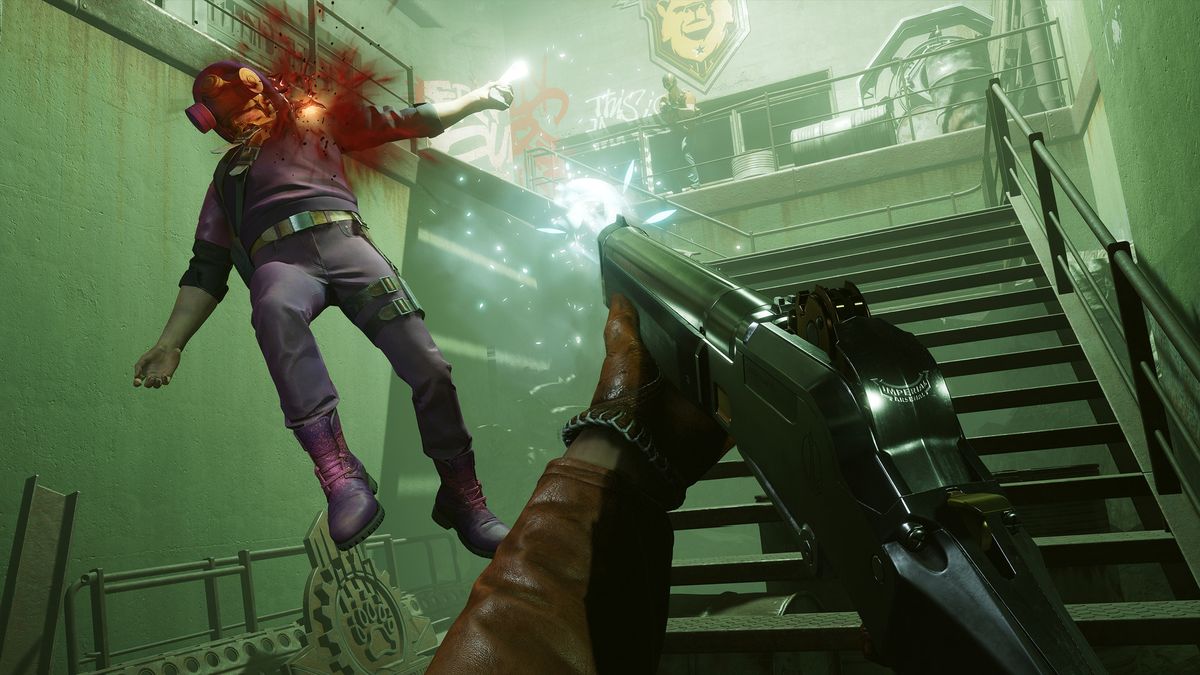Wake up. Go to work in the same space. Perform the same job over and over again—maybe, just maybe, getting a little better at it. Repeat. While I’m describing a typical weekday in several months of last year, I could just as easily be talking about Arkane Studios’ Deathloop—only with fewer assassinations and otherworldly superpowers. And, admittedly, I didn’t really get better at taking out all eight Visionaries in one day, either.
The point is that time loop games strangely reflect this unprecedented time in our lives. It’s a funny or depressing coincidence, depending on your perspective. Given how long it takes to make games, let alone the disruption the pandemic will have wrought on development in recent times, it’s impossible that these games are a response to Covid. Yet since March 2020—when things first fully locked down in the UK, where I live—we’ve had The Forgotten City, Returnal on console, Outer Wilds DLC, and Twelve Minutes. And I can’t face any of them.
The thing is, I wish I could. I love Deathloop’s style and swagger. Its inventiveness and faith it has in the player to successfully exploit the various nooks and crannies of Blackreef to pull off a job that once seemed impossible. It was one of the games I was most looking forward to, once. I also appreciated the cleverness of Outer Wilds in what little of it I played pre-pandemic, and the Echoes of the Eye expansion could’ve been the perfect excuse to blast off into space once again.
Regardless, I can’t stomach the thought of booting any of these games up, even though it’s been the best part of a year since any form of lockdown in England. It’s for the same reason that I’m not up for roguelikes, either: I currently struggle with the pressure of being booted back where I was at the start of a run, no progress made. The thought reminds me of the relentless sameness of lockdown. Perhaps the pandemic affected me more than I thought.
Of course that really isn’t the case with any of these games. With each run you’re learning more about your environment, the rules of the game, and yourself. In Deathloop you’re gradually collating knowledge about Blackreef, and how you can line up all eight targets for the perfect single-run kill. In The Forgotten City, you’re able to hang onto everything in your inventory, mitigating the tediousness of going over old ground.
That said, I still find the concept of time loops claustrophobic. The threat of occupying the same space repeatedly, with no known endpoint, brings back memories from the past year I’d rather forget. It’s why I’m almost certainly not going to go anywhere near Twelve Minutes. I admire anyone who can play a game about a couple trapped in their small, dingy flat—with added violence—right now. Presumably the same people who somehow watched Contagion in the last 18 months.
I’m not going to pretend my life in The Before Times wasn’t almost completely structured by routine. I like a routine. The difference was that I had the freedom to break out of it if I wanted to. Rather than spend a tenth consecutive night at my PC, I could’ve gone out for dinner, or something.
I’ve always been into open-world games—’the more question marks the better’ is an impulse I need to fight frequently to free up time to play something actually interesting. But my unwillingness to get stuck in loops is matched by my renewed desire to go back to Skyrim, again, and others like it. Rather than agonising over a similar sequence of events in a dark, cramped flat, games like Assassin’s Creed, Horizon Zero Dawn, and Fallout give me the freedom to go outside, be the master of my environment, and breathe.
Naturally there’s the argument that formulaic tasks in these games are a loop, too. Arguably I’ve been in a loop in Far Cry 6, a game that hasn’t really changed since the third game in 2012. You’re doing similar things over and over again, true, but at least I know how to end it. Meanwhile there’s a threat inherent to time loop games: you may never leave your flat/ancient Italian city/lawless murder island, and that’s still too raw for me right now.
